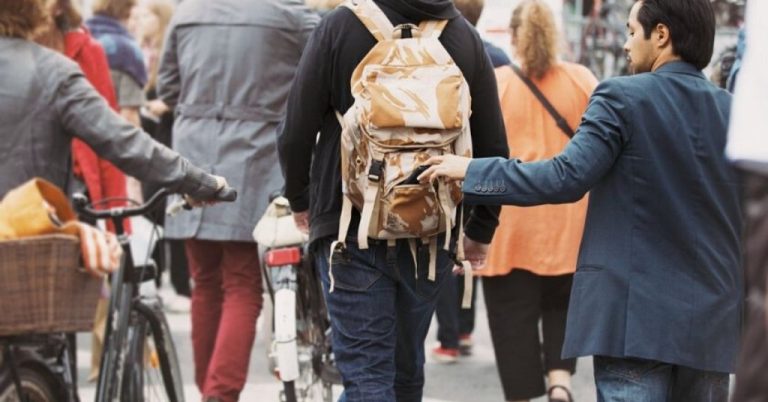
For the most part, travel is something we only ever look forward to. But it’s the times when things go wrong where we begin to question just how savvy we are during our holidays. Many travellers fear being scammed overseas, potentially turning their otherwise fabulous trip into a nightmare. Moreover, scams these days can happen to anyone and strike at the least imaginable situation thanks to dodgy money changers and cunning pick-pockets.
While a lot of us think that it will never happen to them, the reality is that you could very well be the next victim. Whether heading out on a business trip or holidaying at an idyllic island resort, avoid getting caught with your pants down, by following these top tips to keep your protect your pockets while abroad.
Get cracking and do your due diligence
There is a popular saying, “Google is your best friend”. With the Internet, you are just a few clicks away from finding out everything about your travel destination, ranging from the weather forecast to prevalent scams and frauds. Spend time reading and absorbing the info. Find out where the good versus bad areas of your destination are and keep your itinerary within your ‘safe zone’.
It’s also worth going one step further and consider foreign currencies, especially the larger denominations and how to easily and quickly differentiate the various dollar notes. Look at the distinctive features like watermarks and security strips to single out counterfeit bills.
Only ever bring the absolute essentials
No, we aren’t referring to your toiletry bag, but the contents of your wallet or purse. One word of warning is to limit the “plastic” – like identity and membership cards – when preparing for your trip. Other than our passports, a credit card and possibly a driving license, there’s no need for the excess. Don’t give a pick-pocket added reason to target you by bringing bulging wallets. Not only will you most certainly be targeted if spotted, you’ll also be more on edge knowing you have more valuables in your possession.
This does nothing for peace of mind, nor a relaxing breakaway. Instead of your usual wallet choice, use a travel wallet or pouch that can neatly hang around your neck, under your jacket or t-shirt. Also, be mindful with bulky side-sling or cross-over bags that hang against the hip. Try and keep them in front of you so that they don’t welcome snatch thieves.
Be discrete and keep your wits about you
Just bought a sparkling new diamond ring or a hot gadget? It can be pretty tempting to flaunt your valuables in public, especially if you’re excited about them. Even though it may be a bit challenging, try and downplay your possessions. Keep outfits and accessories simple to avoid drawing too much attention to yourself. Likewise, for the excessive cash you may be carrying. Both instances are an open invitation for pickpockets and con men, particularly at key tourist attractions.
To add, never assume your hotel room is safe even when residing in a posh 5-star establishment. Remember the hotel staff including housekeeping and some bellboys, can access rooms even if they are locked. Leaving big-ticket items like laptops or high-end cameras, lying around is as good as throwing them out the window. Keep these pricey devices out-of-sight – either in your luggage or locked in the safe.
If something is too good to be true, it probably is
Spot an item going at an unbelievably low price? Chances are, you could be looking at a cheap knockoff or used good. Are you actually buying a “Cnanel” instead of a genuine Chanel bag? Is the packaging seal broken? Many gadgets are shipped in a sealed box nowadays. To avoid being scammed, inspect the product carefully and account for all accessories before making payment.
Be wary if you are ever being offered a free tour, whether it is arranged by your travel agency or a local taxi driver. This is typically a tourist trap where you will be pressured to purchase tonics, jades and other whatnot from wholesale centre or factory, allegedly sold with a steep discount. But in reality, these offerings are heavily marked up if you ever chanced upon them elsewhere.
You can always politely decline and walk away
Fake monks are a growing phenomenon and have been widely reported in many parts of Asia. Sporting a clean shaven head and robe, some are known to handout Buddhist medallions and other religious items before demanding for a cash donation. However, interestingly and according to prevalent monastic rules, both monks and nuns are forbidden to ask for money, indirectly or explicitly.
Rogue taxis drivers are another common menace even for developed countries like Singapore. Aside from loitering at the airport and tourist hot spots, they are also extremely selective when it comes to their passengers, avoiding the locals while going after foreigners. More importantly, unlike a regular taxi, trips are charged based on a flat rate rather than the on-board fare meter. When travelling, make sure you always opt for a taxi with a metered fare or, if possible, get the airport taxi services which may be pricier upfront but they are guaranteed to be more reliable and ‘honest’.
Though scammers are now increasingly ingenious, you can avoid becoming the next victim while overseas. All that’s required is a little time, a few precautions and a lot of savviness. Also consider purchasing a separate travel insurance plan for a greater peace of mind, which will cover other unforeseen circumstances, including delayed flight and missed connections.
____________________________________________________________
Looking for Travel Tips?
Read our Guides
Can you use Bluetooth Headphones on a Plane?
What is Resort Casual Attire?
Tips on Spring Cleaning Your Travel Gear
Tips for Air travel with Babies
Google Maps Tips and Tricks for Travel
Travel Tips for Booking on Airbnb
How much to tip in the USA
____________________________________________________________